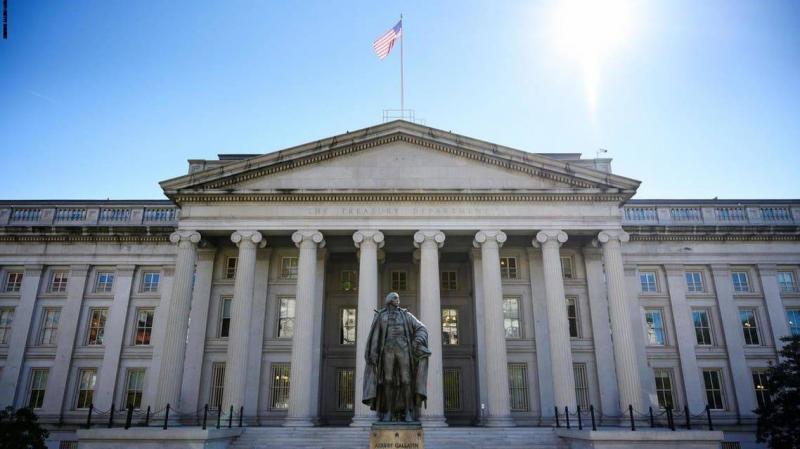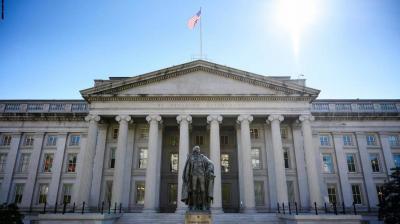The newspaper "Al-Liwaa" reported that, from the perspective of the Ministry of Interior and Municipalities, a study regarding the adoption of large polling centers (Megacenters) for the 2022 parliamentary elections is to be discussed by the Council of Ministers during its session today at 3:30 PM in Baabda Palace. This aims to address what the ministerial committee struggled to resolve in two meetings that resulted in disagreements, putting the issue of postponement before the implementation of "Megacenters" under scrutiny, leading to various accusations.
Among the 18 agenda items (see p. 2) is the Ministry of Displaced Persons' proposal on enhancing the return of Syrian refugees to their homeland, alongside requests for the Ministry of Energy and Water to take necessary measures and application decisions to protect the oil lines in oil facilities in Tripoli to ensure the delivery of Egyptian gas to the Deir Ammar thermal power plant for electricity generation. Additionally, there are financial items, including a draft law to open a reserve credit in the 2022 budget worth 6,500 billion Lebanese lira, with 4,000 billion for various budget reserves and 2,500 billion for the 2022 tender reserves, along with a draft decree to be sent to the Parliament.
It was noted that the session was postponed by 30 minutes due to the overlap with the visit of French Transport Minister Jean-Baptiste Djebbari to Beirut to announce a donation related to public transportation, attended by Prime Minister Najib Mikati and Lebanese Transport Minister Ali Hamiyeh, who held negotiations with the French side weeks ago for this purpose, with the first installment being 50 buses, followed by further deliveries as per Minister Hamiyeh.
Political sources informed "Al-Liwaa" that the Council of Ministers' session appears to be filled with the various issues on the agenda and those presented from outside it, especially concerning food security and the meetings held for that purpose. The sources indicated that the Megacenters issue dominates the discussions based on the committee’s conclusions. The discussion may branch out to the matter of holding the parliamentary elections on schedule, likely to clarify the feasibility of these centers. They called for waiting for reactions to this study. The matter of the Ogero union strike may also arise if the discussions expand into telecommunications.
Regarding the activation of the return of Syrian refugees to their country, the same sources mentioned that Minister of Displaced Affairs Issam Sharaf al-Din has prepared a comprehensive file that he sent to the Cabinet's General Secretariat, urging the need to take advantage of the previously approved political paper regarding returns and showcasing the measures taken by Syria to facilitate the return of refugees and the impacts of displacement on Lebanon. In a statement to "Al-Liwaa," Minister Sharaf al-Din confirmed that he is working on an initiative to launch the project, pointing to mobilizing the file towards achieving positive results, announcing the importance of working for the interest of Lebanon.
According to "Al-Liwaa," President Najib Mikati will emphasize, during the session, the need to hold the parliamentary elections on time, rejecting any requests to postpone this entitlement. According to informed sources, President Mikati stressed that his government is determined to proceed with the elections, a message conveyed to several ambassadors from major countries. The sources stated that the Lebanese government was informed by many ambassadors from major and friendly countries of the necessity of holding the upcoming parliamentary elections on the scheduled date, with some expressing their countries' readiness to provide any assistance the government needs to achieve this important entitlement.
Additionally, the sources noted that these ambassadors also stressed the importance of the Lebanese government approving and adopting the economic rescue plan after reaching an agreement with the International Monetary Fund before the parliamentary elections, warning that any postponement of these elections would diminish the government's credibility, disrupt the agreement with the IMF, and halt international community assistance to solve the challenging financial and economic crisis Lebanon currently faces, thus exacerbating the situation and increasing the suffering of the Lebanese people.
In a new development, upon his return from the French capital (where Major General Ashraf Rifi is present), former Prime Minister Fouad Siniora started a round of contacts and meetings primarily focused on electoral matters along with Lebanon's deteriorating situation, beginning with a meeting held yesterday with the "Group of Twenty," although sources that followed the meeting clarified that it focused on social aspects regarding the work of major social and charitable institutions in Beirut and the regions.
Meanwhile, the ambassador Nawaf Salam announced his withdrawal from running, explaining the reasons behind this stance. In his statement, he said that his decision not to run in these parliamentary elections is because he does not seek a seat in Parliament.
Regarding the dollar's situation, there is notable anticipation regarding the new conditions in the exchange market as the dollar rises again, coinciding with reports that a delegation from the U.S. Treasury last week asked the Central Bank of Lebanon to investigate the violations committed by influential political and economic figures in the financial and banking systems. Yesterday, on March 9, an important statement was issued by the Special Investigation Commission of the Central Bank of Lebanon, stating that it convened on March 3, 2022, and decided to request all operating banks in Lebanon to submit lists containing the names of clients who complied with Circular 154 and returned the required percentage of funds from abroad to their bank accounts in Lebanon. The Special Investigation Commission is to be informed of the names of those who did not comply with Circular 154 by the end of March 2022, which also includes cash deposits made from July 2017 until the end of December 2020 if the beneficiary is classified as a Politically Exposed Person (PEP).
The Commission decided to update the KYC data for politically exposed clients on March 3, 2022, and banks are required to inform the Special Investigation Commission if there are suspicions that should be reported. Accordingly, during April, the Central Bank will communicate with the U.S. Treasury, noting that the Financial Action Task Force (FATF) for the Middle East and North Africa is currently assessing Lebanon's anti-money laundering and counter-terrorism financing system, which includes evaluating the effectiveness and functioning of all relevant bodies within the Lebanese state, including regulatory bodies, law enforcement agencies (security forces, customs, etc.), and the judiciary (prosecutors, courts, and international judicial cooperation), as well as evaluating the performance of non-profit organizations in the Ministry of Interior, legal entities (commercial registry, etc.), and assessing financial and non-financial private sector institutions, including notaries, licensed accountants, and lawyers, alongside various other detailed aspects outlined in FATF standards.
As a result of this assessment, recommendations and a work plan will be issued for Lebanon to follow in cooperation with the relevant authorities to implement them. Diplomatic and financial sources noted that this step comes before the parliamentary elections as a sword hanging over politicians desiring to run in the elections if they are included in the assessments of the Special Investigation Commission and international institutions monitoring the fight against money laundering and the financing of terrorism.
Additionally, in the context of the financial situation, Central Bank Governor Riad Salamé denied reports from some media about the cessation of the Sayrafa platform's operations, stating in his statement that the report is completely unfounded and the Central Bank Governor confirms that the Bank is committed to the effects of Circular 161, and it continues to provide U.S. dollars without limits against the Lebanese lira at the Sayrafa platform rate.
In the realm of activism, a number of members of the Ukrainian community in Lebanon staged a protest yesterday in front of the Russian embassy, marking the 208th anniversary of the birth of the poet Taras Shevchenko, who is considered one of the influential figures in the Ukrainian national movement in the 19th century. They raised their voices against the Russian invasion of their country, calling for an end to the killing of their children.
In social developments, Minister of Social Affairs Hector Hajjar confirmed after his meeting with President Michel Aoun yesterday that payments to eligible families under the social programs led by his ministry will begin progressively next week for 150 thousand families, emphasizing full adherence to the standards set by the ministry and the ministerial committee in determining these families, with transparency being one of the most essential criteria.




